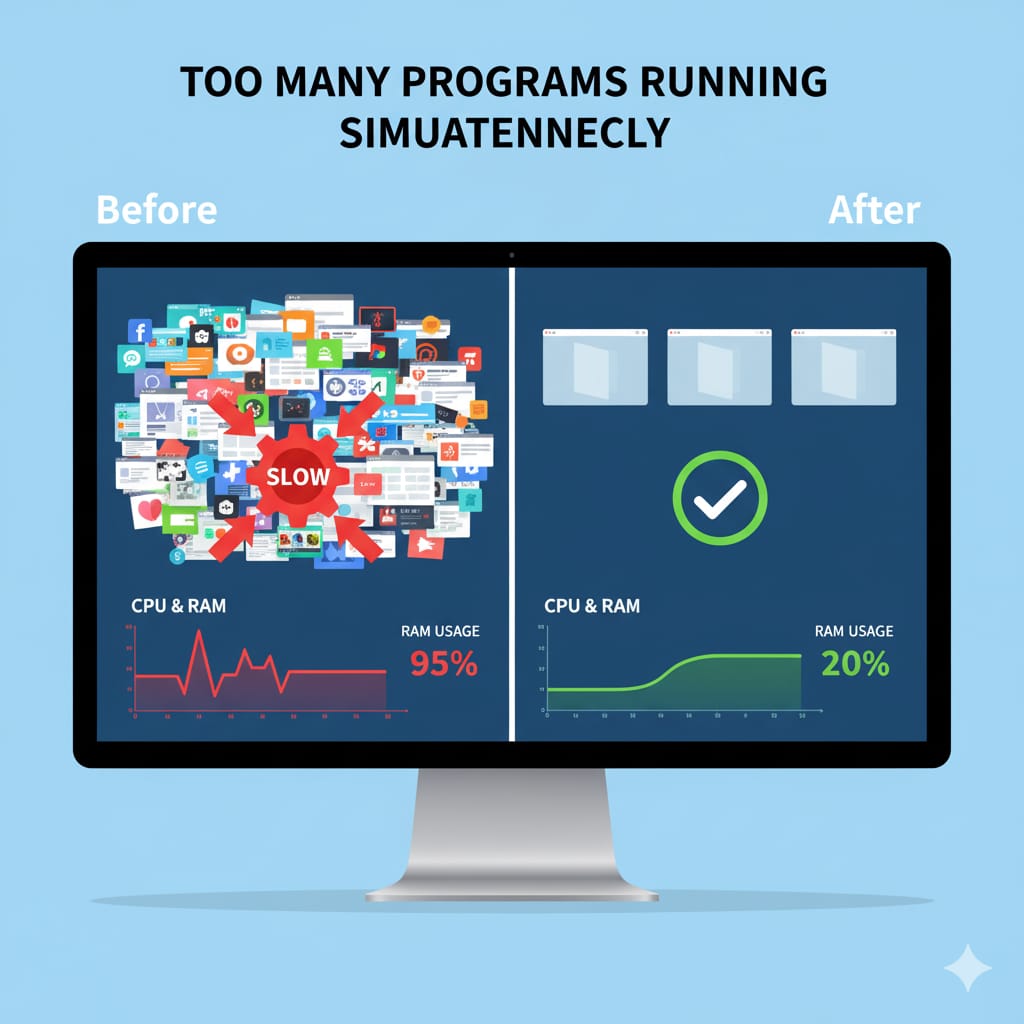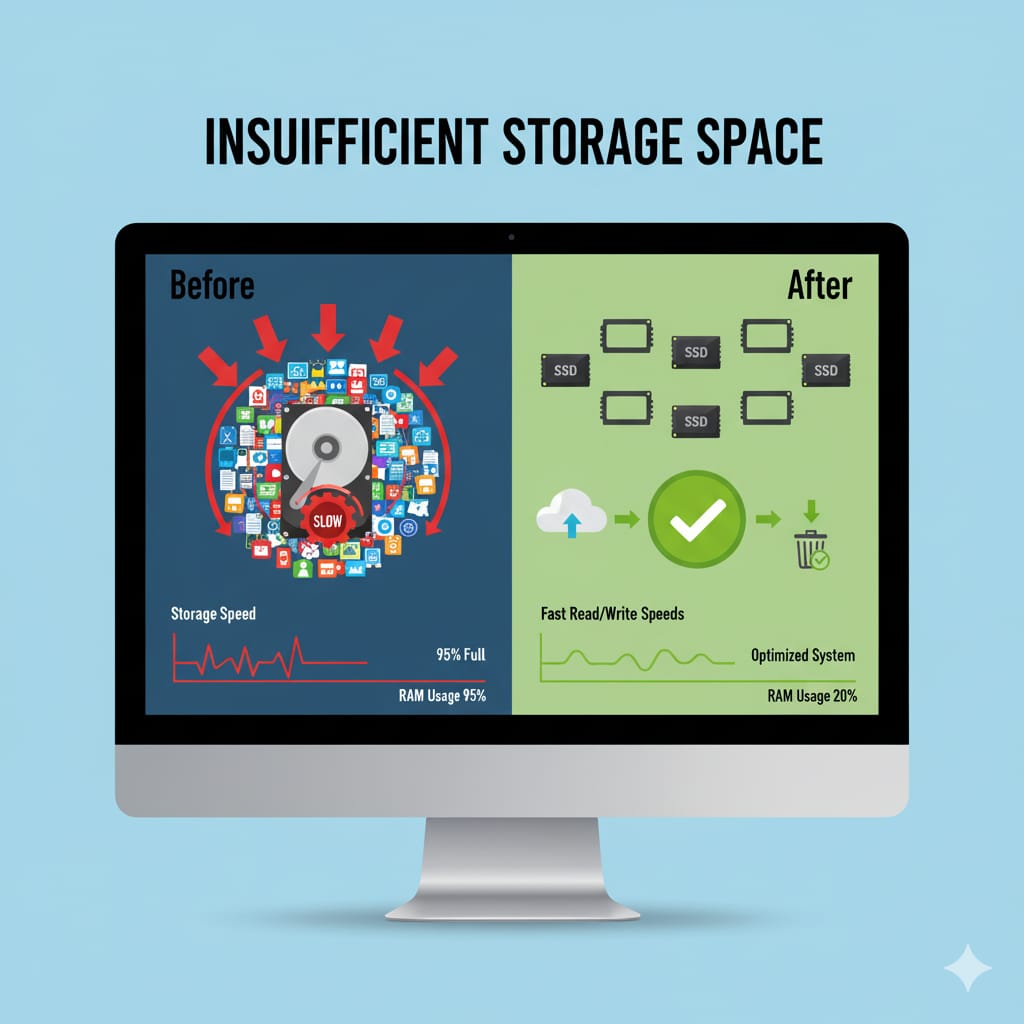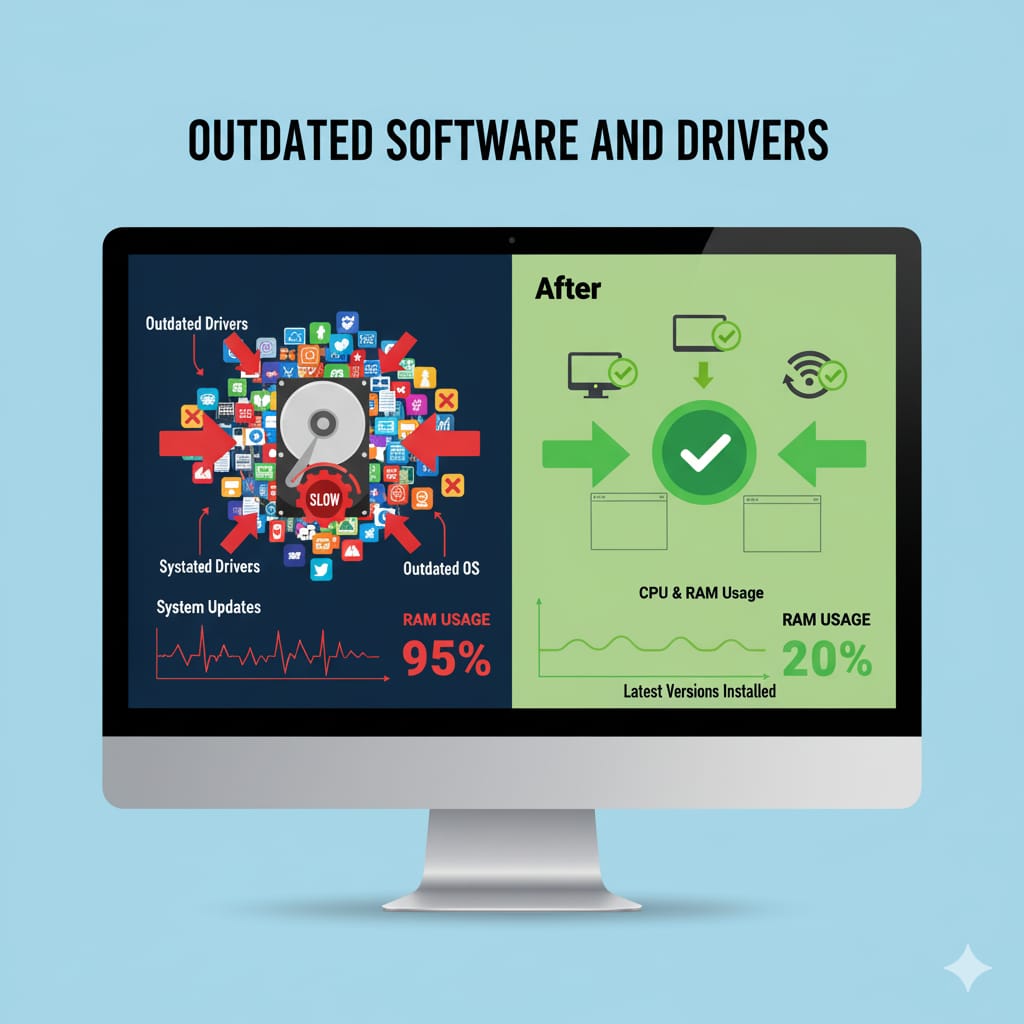Book Appointment Now
Why is my computer so slow
Your computer can become slow for various reasons, impacting its performance and your productivity. Here’s a breakdown of common causes and how to address them:
Why Is My Computer So Slow Because of Insufficient Storage
Having numerous applications open at once, especially resource-intensive ones, can consume a significant amount of your computer’s RAM (Random Access Memory) and CPU (Central Processing Unit). This leads to your computer struggling to keep up with all the demands.
Explanation: The “Before” screen shows a cluttered desktop with many applications consuming high CPU and RAM. The “After” screen illustrates the improvement in performance and reduced resource usage after closing unnecessary programs.
Solution: Close applications you’re not actively using. You can also check your Task Manager (Windows) or Activity Monitor (macOS) to identify and close resource-hogging programs.


Insufficient Storage Space
When your hard drive or SSD (Solid State Drive) is nearly full, your computer can slow down considerably. The operating system needs free space to perform various tasks, including creating temporary files and updating software.
Explanation: The “Before” screen depicts a hard drive that’s almost full, leading to slow performance. The “After” screen illustrates a system with ample free space, faster read/write speeds with SSDs, and files moved to the cloud, resulting in better overall performance.
Solution: Delete unnecessary files, uninstall unused programs, and consider moving large files to external storage or cloud services. Regularly empty your Recycle Bin/Trash.
Outdated Software and Drivers
Old software, including your operating system, applications, and device drivers, can lead to performance issues and security vulnerabilities. Updates often include performance enhancements and bug fixes.

